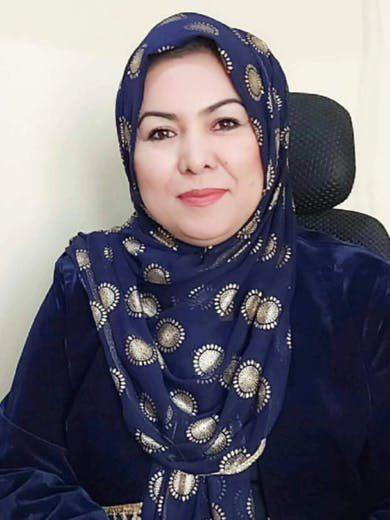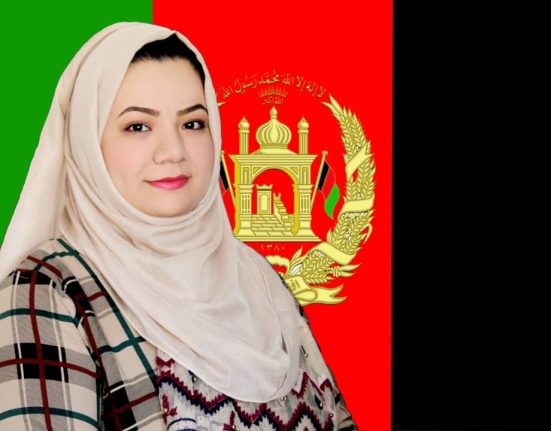Introduction: Mawj Media Network plans to conduct a series of special interviews with influential figures and activists in various fields. This time, we interviewed Mobina Sai, a journalist and civil rights activist.
Ms. Sai is the founder of the first women’s radio station, “Rabia Balkhi,” in the northern part of the country. Before the fall of the country to the Taliban, she worked as the regional director for the Nai organization, which supports free media in Afghanistan. After the Taliban took control, she left Afghanistan and currently resides in Germany.
In this interview, Mawj Network’s journalist discusses various topics with Mobina Sai, from opportunities in journalism for women to the opportunities and challenges of migration in Germany. Mawj invites you to read this interview.
Mawj: Ms. Sai, thank you for giving us this opportunity. Let me start by asking you to share more about your migration experiences, beliefs, challenges, and plans. I apologize for beginning with a question that takes you back several years to the night when Mazar-i-Sharif fell to the Taliban. Where were you at that time, and what were your feelings?
Mobina Sai: Thank you for facilitating this interview. The bitterest memories of my life are from August 2021, when I was in Mazar-i-Sharif. The situation in Mazar-i-Sharif had reached a point where its fall seemed imminent.
When I contacted local officials, they either didn’t respond or tried to create the impression that nothing was happening. We lost Mazar-i-Sharif overnight, a city we all loved, where we had worked for years for opportunities, reconstruction, and development, a city renowned for its culture and hospitality.
Mawj: You had many opportunities to leave the country before, and you had traveled to various countries, but you chose to return and not leave your homeland. What changed your mindset?
Mobina Sai: I had countless opportunities to continue my life abroad. I traveled to various European countries and the United States, but I never considered staying because I had a homeland and an identity. Interestingly, every time I returned to Afghanistan, my friends would ask, “What is there here that you came back?” I would tell them that everything is in the homeland.
Eventually, they left nothing for me and my generation, forcing us to leave our country. But this compulsion is not permanent. Freedom will prevail again, and we will be back in our homeland alongside our people. Despite living in dark and difficult days in Afghanistan and living secretly, I continued to advocate with a group of courageous women through various methods.
Even though we were fighting, there was fear. The Taliban were looking to identify women and civil rights activists. They were trying to identify civil activists in hotels and other places, which is why I changed my hotel and location three times during my month-long stay in Kabul.
I was also in contact with journalists and girls in Kabul, encouraging them to continue their presence and advocate for their rights. After a month, I returned to Mazar-i-Sharif. Despite the lack of a working environment and the threats, I spoke to the media on behalf of the Balkh protesters. Eventually, I received a message from Germany saying that the situation was not good and I should try to leave the country.
Furthermore, some media and organizations were very concerned and cooperated, insisting that I leave Afghanistan. Finally, on October 5, I was transferred from Mazar-i-Sharif to Albania. I was supposed to go to Canada, but since most of my friends and family were in Germany, I chose to live here.
Mawj: Currently, many of us are referred to as “migrants.” What is your definition of migration and asylum?
Mobina Sai: I never liked this term in the past, and I still don’t like it today. But I am without a homeland and living in a foreign land. Becoming a migrant and being away from one’s homeland and identity is very difficult. It’s not just hard for me, but for most people, this word is tough and heavy. When I flew from Mazar-i-Sharif on the Kam Air plane, everyone, including myself, was crying, crying over losing our homeland and being without a country, crying over the pain and suffering that people endure.
Mawj: You are a capable woman with enough experience in media and civil institutions. Now you live in a country that is supposed to become your second home. How do the people of this country view migrants, and what has been your personal experience?
Mobina Sai: To be honest, I am grateful to the people who have always been concerned about us and my generation, and who were trying to save my life and that of other female activists and journalists. From the day of the fall, I was in contact with these kind people, and during the few days I was in Albania, we were constantly discussing the situation. There are very kind people in the world who take away the feeling of being a stranger and being far from home, who have big hearts and show empathy.
Mawj: When we talk to some migrants, most of them complain about the current situation, while only a few seem satisfied. Where do you think the problem lies? Is it the structure and restrictive laws, or the lack of movement, effort, and perseverance among the migrants?
Mobina Sai: Never forget those who help and come to you in difficult times. There may be some problems anywhere. The issues in Germany are different from every perspective, from the language to the laws, but these problems are gradually solvable. Language and other issues have their own challenges. In the early days, I didn’t know how to use city buses, but over time, these problems are solvable. We were familiar with a different life in Afghanistan, and everything was easy for us. Here, we have to start from scratch and adapt to this beginning.
Mawj: Considering your experiences and knowledge, what are your plans for continuing your life at present?
Mobina Sai: Currently, I am focusing on learning the language and taking care of my family. I am also in contact with some media organizations in Afghanistan and Germany. I have continued journalism work in some capacity. I aim to continue this path with strength after learning the language and further studies, and ultimately, I hope to serve my people again.
Mawj: We all know the difficult conditions for women in Afghanistan. Do you have any plans for advocacy, at least in coordination with women living in Europe, especially in Germany?
Mobina Sai: Over the past year, I have been in contact with the media, institutions, and organizations that conducted research on Afghan issues, regularly sharing the situation. My cooperation with the media has been more to raise the voice of women. From here, I also try to raise our voices and strengthen the spirit of advocacy.
Mawj: As the last question, do you miss your homeland?
Mobina Sai: Absolutely, I miss my homeland and I am worried. It is true that I am at peace here, but I never forget my good and bad memories. The only thing that somewhat soothes me is that the environment is currently not conducive for my generation in Afghanistan. If I were in Afghanistan today, I couldn’t do anything because there is no freedom of speech and voices are silenced. There are no tools for freedom of speech and raising voices. Without these opportunities, I am compelled to strive for freedom here. The homeland and birthplace remain, and there is hope for return. Therefore, we will go back and work for our generation and our country. I spend my days here with this hope and keep striving.
Mawj: Thank you sincerely for dedicating your time to this interview.
Mobina Sai: Thank you as well, stay safe.



